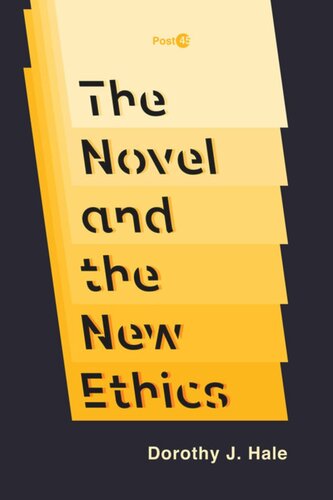

Most ebook files are in PDF format, so you can easily read them using various software such as Foxit Reader or directly on the Google Chrome browser.
Some ebook files are released by publishers in other formats such as .awz, .mobi, .epub, .fb2, etc. You may need to install specific software to read these formats on mobile/PC, such as Calibre.
Please read the tutorial at this link: https://ebookbell.com/faq
We offer FREE conversion to the popular formats you request; however, this may take some time. Therefore, right after payment, please email us, and we will try to provide the service as quickly as possible.
For some exceptional file formats or broken links (if any), please refrain from opening any disputes. Instead, email us first, and we will try to assist within a maximum of 6 hours.
EbookBell Team

4.1
90 reviewsFor a generation of contemporary Anglo-American novelists, the question "Why write?" has been answered with a renewed will to believe in the ethical value of literature. Dissatisfied with postmodernist parody and pastiche, a broad array of novelist-critics—including J.M. Coetzee, Toni Morrison, Zadie Smith, Gish Jen, Ian McEwan, and Jonathan Franzen—champion the novel as the literary genre most qualified to illuminate individual ethical action and decision-making within complex and diverse social worlds. Key to this contemporary vision of the novel's ethical power is the task of knowing and being responsible to people different from oneself, and so thoroughly have contemporary novelists devoted themselves to the ethics of otherness, that this ethics frequently sets the terms for plot, characterization, and theme.
In The Novel and the New Ethics, literary critic Dorothy J. Hale investigates how the contemporary emphasis on literature's social relevance sparks a new ethical description of the novel's social value that is in fact rooted in the modernist notion of narrative form. This "new" ethics of the contemporary moment has its origin in the "new" idea of novelistic form that Henry James inaugurated and which was consolidated through the modernist narrative experiments and was developed over the course of the twentieth century. In Hale's reading, the art of the novel becomes defined with increasing explicitness as an aesthetics of alterity made visible as a formalist ethics. In fact, it is this commitment to otherness as a narrative act which has conferred on the genre an artistic intensity and richness that extends to the novel's every word.